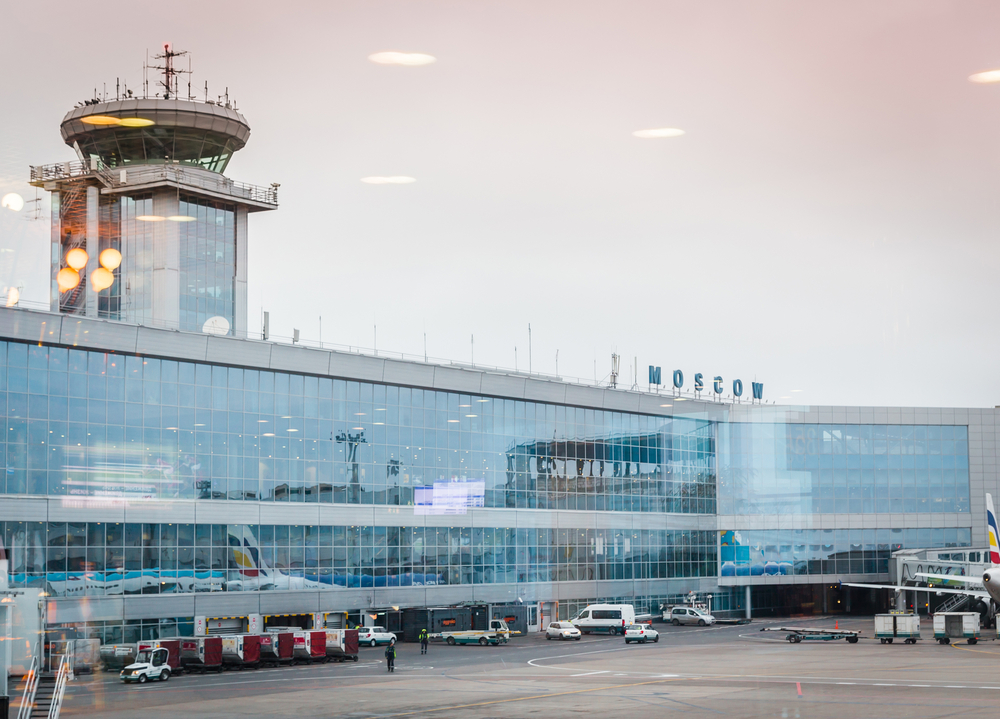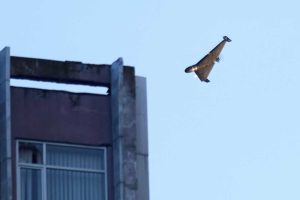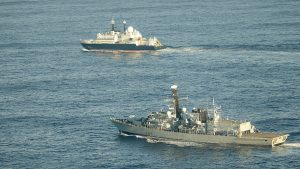€2.5 Billion Worth of Aircraft Stranded in Russia: Legal Battle Between Leading Aircraft Lessors and Insurers Over Compensation Following Ukraine Invasion.
n what is quickly becoming one of the largest and most intricate commercial lawsuits ever, global aircraft lessors and major insurance companies, including Lloyd’s, AIG, and Chubb, are embroiled in a legal battle over who will bear the financial responsibility for the approximately €2.5 billion worth of aircraft stranded in Russia following the Ukraine invasion.
Since Western sanctions were imposed on Russia in 2022, aircraft leasing firms were compelled to terminate their contracts with Russian airlines. This led to the grounding of around 400 aircraft, which included jets worth an estimated $10 billion (£8.2 billion). As a result, many aircraft lessors, including some of the world's biggest players, have been attempting to reclaim their losses by invoking war risk insurance clauses on their contracts. However, the legal wrangling over whether the insurance companies should cover the losses or the leasing firms should bear the brunt continues to be an ongoing saga in the courts of Ireland and London.
This case, being heard in the commercial court in Dublin, has dragged on for several months, and the proceedings are expected to last even longer, with legal fees for the 180 lawyers involved already running into hundreds of millions of euros. It is one of the largest legal disputes in the aviation industry to date.
The Stranding of Aircraft and the Legal Fallout
The trouble began in March 2022 when Russia’s invasion of Ukraine triggered sweeping sanctions that left aircraft leasing companies in a dilemma. By March 28, 2022, the leasing firms were forced to cancel their contracts with Russian airlines, which effectively grounded billions of dollars' worth of aircraft.
At the time, the aircraft leasing firms hoped that Russia would eventually return these "stolen" jets. However, that hope faded quickly when Moscow flatly refused to comply. In fact, many of these jets were re-registered under Russian ownership and subsequently sold to local Russian airlines, despite the original owners having no consent in the matter.
This led to the launch of legal proceedings from the world’s largest lessors, including Avolon, SMBC, and BOC Aviation, to claim compensation under their war risk insurance policies. The claims are based on allegations that the jets were effectively stolen and the lessors should be reimbursed for their losses.
In the ongoing Dublin case, these lessors argue that the insurers should bear the financial responsibility for the jets left stranded in Russia. The lessors are seeking compensation not just for the loss of the aircraft, but for the massive devaluation of these assets, which have been rendered inaccessible due to the ongoing conflict.
The Major Players in the Legal Battle
The dispute involves several of the world’s largest aircraft lessors, including Avolon, SMBC, BOC Aviation, Nordic Aviation Capital, CDB Aviation, and Hermes Aircraft. Ireland, known for its strong aviation sector, is the home to over 60% of the world’s leased aircraft ownership or management. This gives the Dublin court a unique position in deciding the outcome of these legal proceedings, which will likely set precedents for future cases in the aviation industry.
Avolon, the world’s second-largest aircraft lessor, which has significant ties to the Irish market, is pursuing claims over the loss of 116 aircraft and 23 engines. Initially, Avolon estimated its losses at $3.5 billion (£2.9 billion), but it has already reached settlements with insurers totaling over $1.3 billion. However, the company is still continuing its legal action for the remaining claims, with the outcome of the case yet to be determined.

Building of the airport Domodedovo November 23, 2014 in Moscow.
Other major lessors such as SMBC and BOC Aviation have similarly been engaged in lengthy legal proceedings. SMBC, for instance, reached a confidential settlement with Swiss Re just before Christmas, which highlights the ongoing negotiations between insurers and lessors.
The Role of Insurance Companies
The insurance companies involved, including Lloyd’s of London, AIG, Chubb, and Swiss Re, have found themselves in the spotlight. They are tasked with covering these massive claims, but the insurers have challenged the claims, arguing that the lessors should not be entitled to compensation. They point to clauses in the contracts that might limit payouts or contain exceptions for certain situations, including the question of whether the loss of aircraft in a war zone should be covered.
Attorneys representing the insurance companies have scrutinized the lessors' actions, including their attempts to retrieve the jets from Russia. Emails and other documents revealed that lessors, such as BOC Aviation, had made extensive efforts to retrieve their jets and ensure they were parked in “safe” locations like Lufthansa facilities in the Philippines. When these efforts failed, BOC Aviation and others invoked their insurance clauses, alleging that Russia’s refusal to return the aircraft made recovery "improbable."
Impact on the Aviation Industry
This case is a pivotal moment for the aviation leasing sector, as it illustrates the challenges posed by geopolitical risk, particularly in the context of armed conflict and international sanctions. The final outcome could have significant implications for future aviation leasing contracts, particularly in relation to war risk coverage and the ability of lessors to recover their assets in the event of similar geopolitical events.
Furthermore, this case serves as a reminder of how quickly the aviation sector can be disrupted by unforeseen events like the Ukraine war. Aircraft leasing companies typically invest billions in their fleets, and the losses incurred due to these sanctions have been catastrophic for many companies. With the continued uncertainty over the fate of these jets, the entire aviation leasing market remains in a state of flux.
The Ongoing Legal Proceedings
With proceedings expected to last several more months, the Dublin commercial court and its counterpart in London continue to review the claims of the lessors against the insurance companies. In recent hearings, BOC Aviation’s efforts to recover the jets have been detailed extensively, with many questioning whether the aircraft will ever be returned.
For now, it appears that both sides are preparing for a protracted legal battle that may not be settled until later in 2025 or beyond. As of now, the case is still in its early stages, and the courtroom drama is set to continue, with no clear resolution in sight.
Following Russia's invasion of Ukraine in February 2022, the international community, led by Western nations, imposed sweeping sanctions on Russia in an effort to deter its aggression and punish its actions. These sanctions targeted key sectors of the Russian economy, including banking, energy, defense, and trade, aiming to isolate Russia from the global financial system. The European Union, United States, and other allies froze assets of Russian officials, oligarchs, and businesses, and excluded several major Russian banks from the SWIFT international payment system, severely limiting Russia's ability to conduct financial transactions abroad.
Additionally, the sanctions included export controls on critical technologies, such as semiconductors, aviation parts, and military equipment, preventing Russia from accessing these vital goods. Restrictions on Russian oil and gas exports were implemented, with the EU and the US reducing their dependence on Russian energy resources. The sanctions also targeted Russia's access to global markets by limiting imports and investments.
These measures aimed to weaken Russia's economy, destabilize its financial systems, and pressure the government to halt the invasion. However, Russia sought to circumvent these sanctions by strengthening ties with non-Western countries, including China and India, and by finding alternative financial and trade routes. The sanctions continue to evolve as the conflict persists.




















